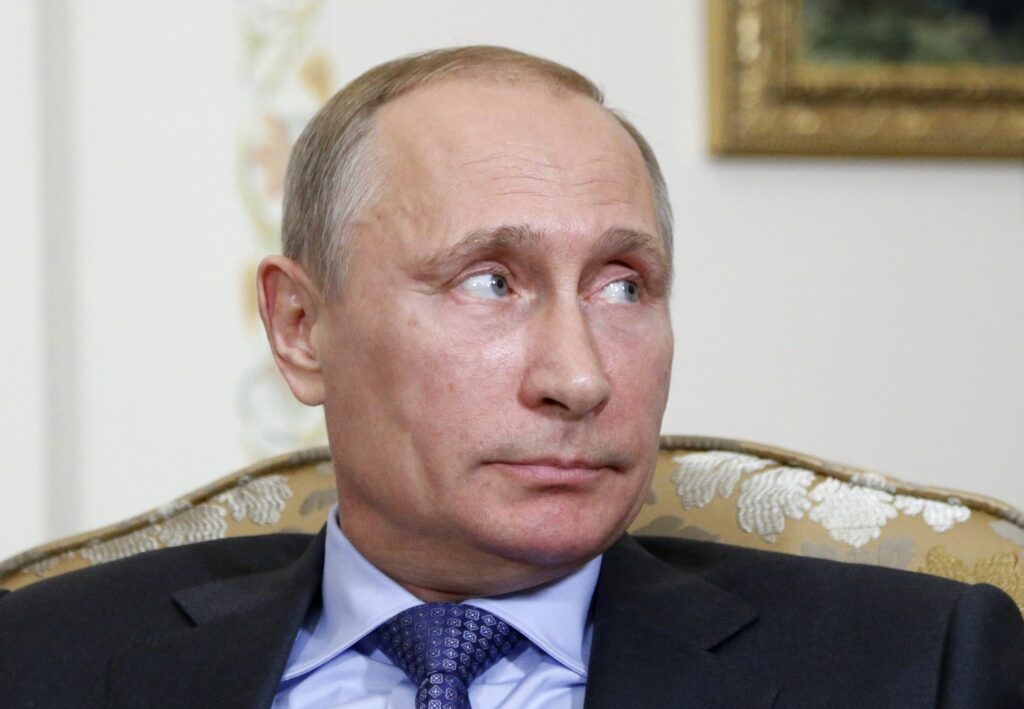BRUSSELS BEHIND THE SCENES
Weekly analysis and untold stories
With SAM MORGAN
Kremlin's Progress
Russia’s war against Ukraine continues to push neighbouring countries to do things that were previously unthinkable or at least extremely unlikely. The ‘Kremlin Effect’ appears to show little signs of abating anytime soon.
Vladimir Putin is changing the world, there is no doubt about that. But the changes underway are almost certainly not what Russia’s autocratic ruler had in mind when he ordered his military to invade Ukraine in February.
Indeed, with every passing week it seems, Russia’s choices undermine its own standing in the world, by either eroding its economic hold over wealthy and poorer nations alike or tossing out diplomatic clout it has taken decades to amass.
The last ten days have been no exception.
BRUSSELS BEHIND THE SCENES is a weekly newsletter which brings the untold stories about the characters driving the policies affecting our lives. Analysis not found anywhere else, Sam Morgan helps you make sense of what is happening in Brussels. If you want to receive Brussels behind the scenes straight to your inbox every week, subscribe to the newsletter here.
‘Europe’s other war’ between Armenia and Azerbaijan is a case in point. A shaky ceasefire achieved after bloody fighting a couple of years ago was broken again in September, when Baku’s forces attacked Armenian territory proper.
It risked turning into a full-fledged conflict on Armenia’s internationally-recognised territory rather than land within Nagorno Karabakh, a breakaway province heavily disputed between the two sides.
Russia has previously acted as mediator between Yerevan and Baku, as well as stationing ‘peacekeeping’ troops in the region. But with Moscow’s attention elsewhere, that status quo is changing.
Last week, at the inaugural meeting of the European Political Community, leaders Nikol Pashinyan—a former journalist who was swept to power in Armenia’s 2018 revolution—and Ilham Aliyev—the latest of a political dynasty that has ruled Azerbaijan since the 1990s—sat down to chat.
The tete-a-tete was of course not chaired by Vladimir Putin or his chief diplomat Sergey Lavrov. Instead, Emmanuel Macron—with European Council head Charles Michel as co-pilot—led the talks.
How effective this fresh attempt at peace will pan out to be still remains to be seen but it marks a dramatic shift in how the Caucasus region handles its affairs and farms out its mediation requests.
The geopolitical optimist might even suggest that this is the first stage in a stronger rapprochement between the EU and the two nations. Azerbaijan is already upping its fossil fuel exports, while Armenia is covered by a fairly comprehensive partnership agreement.
Putin has little to offer either Baku or Yerevan, while Brussels and other European capitals do.
Green Knight
Moscow’s predictable weaponisation of energy exports has also shifted the needle in a big way. In the early days of the war, there were calls for the EU’s Green Deal to be scaled down, put on the back burner or even shut down completely.
None of those options has come to pass and, if anything, it has steeled resolve across the bloc. Yes, a lot of Russia’s gas imports have been replaced with hydrocarbons sources elsewhere but the green transition has also been turbocharged.
Politico Europe quite rightfully ranked Vladimir Putin top of their list of biggest influencers on green policies earlier this week, scoring him highly for influence but zero out of ten for vision.
Look no further than Estonia for tangible proof of this impact. Its parliament on Thursday voted in favour of running the country’s electrical system completely on renewable power by 2030. The target was previously 40%.
Estonia’s population is only 1.3 million but this is still a massive decision. The government is not exactly stacked with climate-sensitive politicians either, this green shift was purely driven by a desire to insulate the country from Russian influence.
How will Estonia achieve it? Fresh tenders for renewable energy will be launched, permitting procedures sped up and new incentives provided for wind farms.
Its most polluting energy source, oil shale, was already supposed to be phased out by 2035. A culturally-sensitive issue, given the number of ethnic Russians who work in the industry, that date will likely be brought forward the more clean energy becomes available.
There could be a sting in the tail as Estonia sources a chunk of its power from biomass—essentially burning polluting wood—so if that figure increases dramatically there will be big problems.
But where there is a will—especially political will—there is more often than not a way. Estonia has even recently dabbled in using small nuclear reactors, which could potentially offer more zero-carbon power.
Russia’s list of unintended achievements continues to stack up. A potential second round of joint borrowing by the EU, Denmark joining the bloc’s defence treaty, Bosnia getting a sniff of membership candidacy… what’s next?
BRUSSELS BEHIND THE SCENES is a weekly newsletter which brings the untold stories about the characters driving the policies affecting our lives. Analysis not found anywhere else, Sam Morgan helps you make sense of what is happening in Brussels. If you want to receive Brussels behind the scenes straight to your inbox every week, subscribe to the newsletter here.

